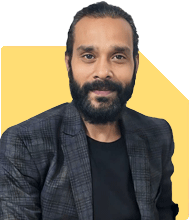Sushil Sukhwani | Answer |Ask -Follow
Study Abroad Expert - Answered on Jul 31, 2023

My son wants to go for undergraduate in US. Please advise pros and cons. Thanks,
First and foremost, thank you for getting in touch with us. With your son's interest in pursuing undergraduate education in the USA, it's critical that you understand the many benefits and downsides. Here’s a summary:
Pros:
1. Academic Excellence: Universities in USA provide excellent education and research opportunities, with degrees that are recognized worldwide.
2. Array of Options: The United States offers a wide range of academic programs and majors, allowing students to customize their education to their interests and future prospects.
3. Research Possibilities: Colleges in USA have well-funded research programs that allow students to partake in cutting-edge studies, work with renowned scholars, and earn priceless experience.
4. Build global networks: Study in USA allows your son to interact with students from many cultures, establishing a strong global network for future professional opportunities.
5. Career Opportunities: A degree from the United States improves career opportunities internationally since employers value the abilities and global exposure earned.
6. Extracurricular Activities: Extracurricular activities, clubs, and organizations at US universities often allow students to develop leadership abilities and pursue interests outside of academics.
Cons:
1. Exorbitant Price: International students studying in the United States endure higher tuition rates than domestic students, causing a major financial strain. Furthermore, living expenses, viz., housing and healthcare, add to the overall price.
2. Immigration and Visa Rules: Navigating the US visa procedure can be challenging and time-consuming. Your son must make sure he fulfills all the requirements and keeps up with any changes to the policy.
3. Culture Shock: Moving to a foreign country can be challenging, and your son might face culture shock. Getting used to a new environment, lifestyle, and social conventions takes time and patience.
4. Away from Home: For some students, being far from home can be emotionally stressful, particularly during significant events or trying times.
5. Competitive Admissions: Admission to prestigious US institutions can be fiercely competitive, and meeting the admission requirements can be a challenging procedure.
6. Medical Insurance: In the US, health insurance is mandatory, but it may also be pricey. Understanding coverage and selecting the appropriate plan is critical for overseas students.
The decision to study in USA depends on your son's particular circumstances, academic interests, and professional objectives. Pursuing a US undergraduate education can be satisfying if he is passionate about a certain field and aware of the difficulties and opportunities. Making an educated decision requires research into colleges, programs, and scholarships.
For more information, you can visit our website.
You may like to see similar questions and answers below
Sushil Sukhwani | Answer |Ask -Follow
Study Abroad Expert - Answered on Jul 04, 2023
Sushil Sukhwani | Answer |Ask -Follow
Study Abroad Expert - Answered on Apr 06, 2024
Geeta Ratra | Answer |Ask -Follow
Visas, Study Abroad Expert - Answered on Jan 03, 2024
Dr Pananjay K Tiwari | Answer |Ask -Follow
Study Abroad Expert - Answered on Aug 13, 2024
Dr Karan Gupta | Answer |Ask -Follow
International Education Counsellor - Answered on Jul 11, 2025
Nayagam P P |10854 Answers |Ask -Follow
Career Counsellor - Answered on Dec 14, 2025
Radheshyam Zanwar |6744 Answers |Ask -Follow
MHT-CET, IIT-JEE, NEET-UG Expert - Answered on Dec 14, 2025
Radheshyam Zanwar |6744 Answers |Ask -Follow
MHT-CET, IIT-JEE, NEET-UG Expert - Answered on Dec 14, 2025
Dr Dipankar Dutta |1840 Answers |Ask -Follow
Tech Careers and Skill Development Expert - Answered on Dec 14, 2025
Dr Dipankar Dutta |1840 Answers |Ask -Follow
Tech Careers and Skill Development Expert - Answered on Dec 13, 2025
Dr Dipankar Dutta |1840 Answers |Ask -Follow
Tech Careers and Skill Development Expert - Answered on Dec 13, 2025
Mayank Chandel |2575 Answers |Ask -Follow
IIT-JEE, NEET-UG, SAT, CLAT, CA, CS Exam Expert - Answered on Dec 13, 2025
Radheshyam Zanwar |6744 Answers |Ask -Follow
MHT-CET, IIT-JEE, NEET-UG Expert - Answered on Dec 13, 2025
Mayank Chandel |2575 Answers |Ask -Follow
IIT-JEE, NEET-UG, SAT, CLAT, CA, CS Exam Expert - Answered on Dec 13, 2025
Mayank Chandel |2575 Answers |Ask -Follow
IIT-JEE, NEET-UG, SAT, CLAT, CA, CS Exam Expert - Answered on Dec 13, 2025

























